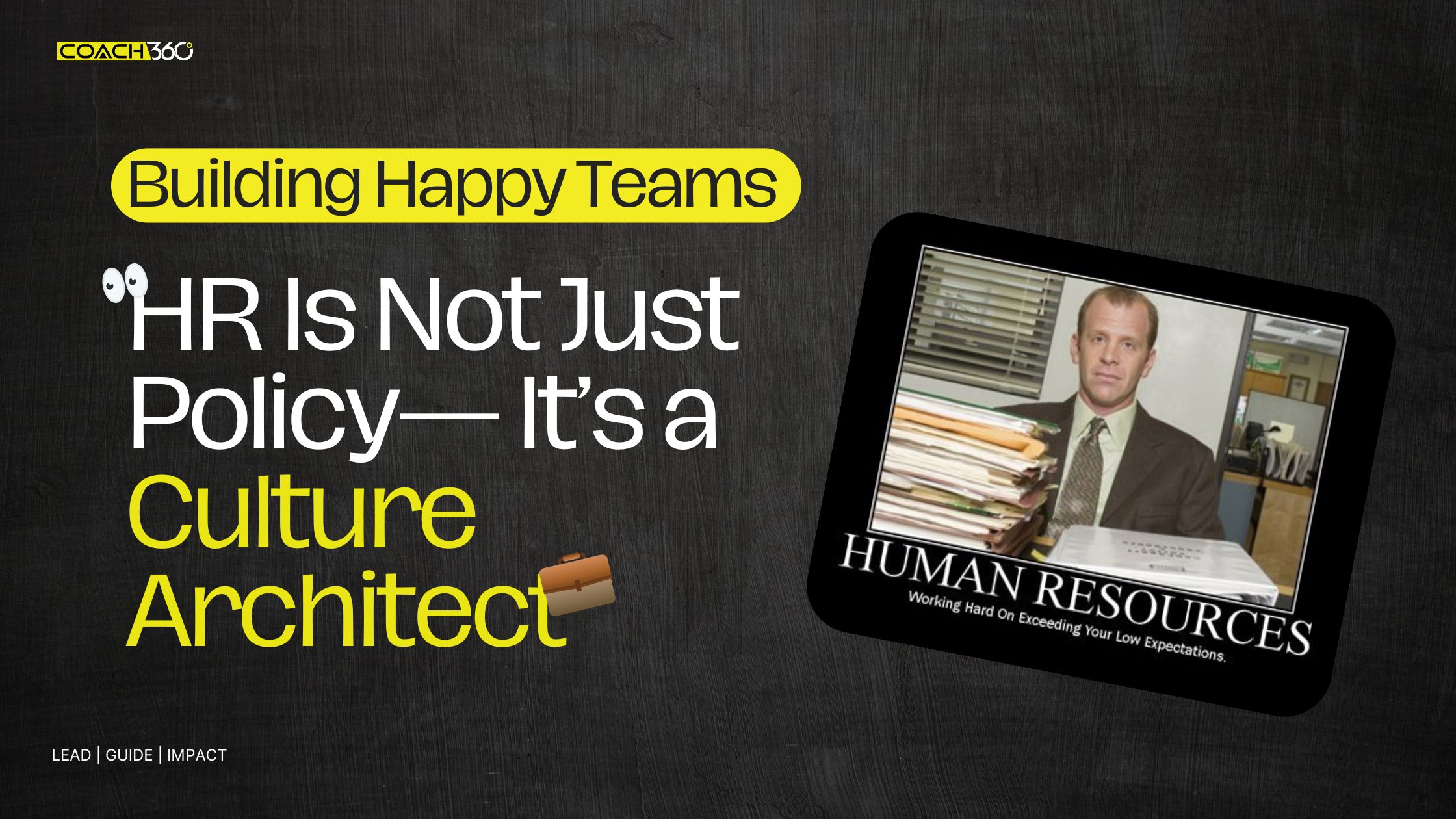
Human Resources (HR) is considered to be mostly about policies, payroll, and plenty of paperwork. Although all these tasks continue to be important in their own right, they no longer define HR. Today's foremost HR leaders are ones who act as culture architects, who not only manage their people but also create the work environment around them.
Taking cue from that evolution is the rethinking of the employee experience more broadly. It is no longer about extinguishing fires or enforcing the rules. It is about building cultures that attract, develop, and retain great people. This is where brands like Coach360 are playing a transformational role by helping HR to build an emotionally intelligent, high-performing workplace that is aligned with values.
Conventional human resources departments were frequently reactive, taking over when something went wrong. But the new HR is proactive. From onboarding to offboarding, it purposefully creates the company culture. These days, HR professionals are in charge of developing inclusive workplaces, encouraging learning and growth, and building a sense of belonging and resilience.
Culture is created through strategic leadership, modeled behaviors, and daily decisions; it doesn't just happen. The blueprint is in HR's possession. HR directors can go beyond merely managing human resources to fostering human potential with the help of resources like those provided by Coach360.
Employees' perspectives on work were irrevocably altered by the pandemic. These days, the most sought-after qualities in an employer are flexibility, emotional well-being, personal development, and social impact. HR must therefore go beyond the conventional playbook.
Performance is driven by culture. Teams with high levels of engagement are 21% more profitable, according to Gallup. However, engagement stems from a culture where individuals feel appreciated, seen, and in line with the mission, not from a team lunch or a foosball table.
These days, HR serves as a link between the company's stated beliefs and its actual actions. Morale deteriorates when there is a misalignment. However, the organization becomes more human and more productive when HR is given more authority as a culture architect.
Culture is an ongoing plan, not a one-time effort, the Coach360 knows. The Coach360 prepares HR leaders via executive coaching, behavioral evaluations, and leadership development programs to consistently and deeply infuse cultural values throughout the company.
HR's major difficulty is converting values into practice. For instance, a business may claim to value teamwork, but if team leaders are not taught emotional intelligence or feedback distribution, the culture stays mismatched. Giving HR professionals the power to lead with compassion and clarity, the Coach360 provides realistic means of closing this divide.
This evolution in HR's roles demands further skills, such as coaching, facilitation, conflict resolution, data literacy, and change management, to name some. Solution providers like The Coach360 are an absolute must and not just nice-to-haves, as they are essential in providing support for HR teams in driving cultural change and managing rapid transformation.
The idea that HR exists to shield the business from its workers is among the most pervasive myths about it. In actuality, contemporary HR safeguards the culture by standing up for the company and its employees. It has a distinct viewpoint and responsibility because it is the only department that interacts with every employee in the business.
When HR is well-resourced and in sync with leadership, it can help teams collaborate more effectively, address problems before they become crises, and make sure that values are ingrained in the company's operations rather than being merely statements.
HR is now the hand that holds the blueprint for the entire employee experience, not just the department that writes the handbook. Organizations flourish when HR acts as a culture architect.
Businesses that invest in culturally intelligent HR practices will perform better than those that don't in this new era, where connections and purpose are just as important as benefits and salaries. And HR leaders can take on their most potent role to date, not just managing culture, but creating it, with the correct assistance from partners like Coach360.